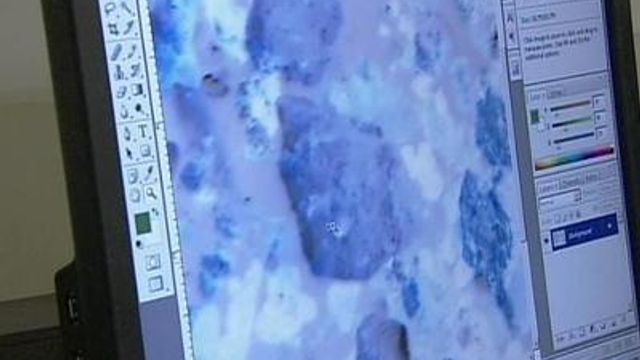Local News
N.C. State could be CSI training ground
Right now, the university offers individual classes in forensic studies but has no formal forensics program that would teach students all they need to know to work in criminal investigations.
Posted — UpdatedRALEIGH, N.C. — North Carolina State University could be the next training ground for crime scene investigators.
Right now, the university offers individual classes in forensic studies but has no formal forensics program that would teach students all they need to know to work in criminal investigations.
But organizers of the North Carolina Program for Forensic Sciences, a program that helps investigators solve homicides, wants the university to take the lead in teaching others to do the same.
"People don't have a lifetime to spend learning a particular discipline," said Bill Oliver, a forensic archaeologist who contributes to the program. "What they need are tools that they can put in the toolbox and apply them as needed at the crime scene."
The program, a joint endeavor between the university and the North Carolina Office of State Archaeology Research Center, maintains a list of certified experts, including archaeologists, geologists, chemists and entomologists, whom law enforcement agencies use to help investigate homicides.
For example, Raleigh police used experts from the program to help solve the murder of Cynthia Moreland, a Progress Energy worker who was abducted, raped and killed. Antonio Chance, who pleaded guilty earlier this month in the case, left her body behind an abandoned building in Harnett County in September 2006.
In the case, a geologist was able to match a mineral from the soil where her body was found with a speck found on the bottom of Chance's shoe.
"We looked at soil samples from the floor mats of the car, from underneath the fenders and the wheel wells of the car," forensic geologist and chemist Dr. Phil Bradley said. "We went to the scene where the body was found."
Oliver says North Carolina already has scientists who know how to do this kind of work. It just needs to be passed down to the next generation.
"Don't reinvent the wheel," he said. "Apply it in a different way. Instead of driving a Model-T vehicle, we're looking to send a rocket out."
The deans of the individual colleges at N.C. State are considering the proposal to create a forensics program that would involve research, education and training.
• Credits
Copyright 2024 by Capitol Broadcasting Company. All rights reserved. This material may not be published, broadcast, rewritten or redistributed.





